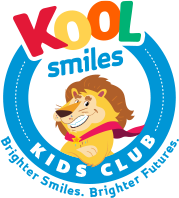
How to Stop Toddlers From Grinding Their Teeth
Grinding teeth (or bruxism) is common in toddlers and young children, whose mouths and teeth are going through significant changes. The condition usually goes away on its own and doesn’t require treatment, but it can be a sign of a more serious health condition, so it’s best to see a dentist just in case.
Keep reading for more information on bruxism, including common causes and symptoms.
Why Is Grinding Teeth Common in Toddlers?
Between 15% and 30% of toddlers grind their teeth. Teeth grinding is most common at two specific stages – first when the baby teeth come in, and then again when the permanent teeth start to erupt. Children generally grind their teeth less often outside these two stages.
In some cases, grinding teeth in one’s sleep (sleep bruxism) lasts beyond childhood. Sleep bruxism is considered a sleep-related movement disorder. Because it’s often linked to an underlying problem, sleep bruxism should be addressed by a dental professional.
Medical Reasons for Bruxism in Children
Many seemingly unrelated conditions can lead to teeth grinding in toddlers, including:
- Stress
- Breathing issues (such as sleep apnea)
- Misaligned bite
- Poor jaw posture
- Jaw strain
- Developmental issues within the mouth
If your child shows signs of teeth grinding, your dentist or another healthcare provider may recommend a sleep study to rule out breathing issues as the cause.
Symptoms of Excessive Teeth Grinding
The mechanical stress from teeth grinding can damage the teeth, of course, but bruxism also causes quite a few symptoms beyond the teeth, like:
- Tight jaw muscles or jaw muscles that feel physically fatigued
- Pain in the jaw, face, neck, or around the ear
- A dull headache, especially around the temples
- Soreness or bite marks on the inside of the cheeks
- Lockjaw
Bruxism and TMD (or TMJ disorder) are two different conditions that can occur together or separately. They share some symptoms, so it’s essential you see a dentist to confirm the cause of your child’s symptoms.
If a dentist diagnoses your child with bruxism, he or she may recommend a nighttime mouth guard to minimize the damage caused by teeth grinding over time.
Schedule Your Toddler’s Dental Visit
Each child should see a dentist for the first time within six months of their first tooth erupting, or around the age of one. They should continue with routine visits every six months. If your toddler is grinding his or her teeth, though, you may want to schedule an appointment between routine visits.
Kool Smiles Kids Club has partner dentists across the U.S who are dedicated to providing quality dental care for children. Whether you’re a fresh, first-time parent or a seasoned pro, the kid-friendly teams at our partner clinics will go above and beyond to make sure you and your child feel great about your visit.
Finding affordable, high-quality dental care for your child can be challenging. We’ve got you covered! Kool Smiles partner dentist accept most major dental insurance policies, including Medicare, TRICARE, and CHIP (formerly SCHIP). When you choose a Kool Smiles partner dentist for your child’s oral health care, you can rest assured that your child’s teeth are in great hands.
